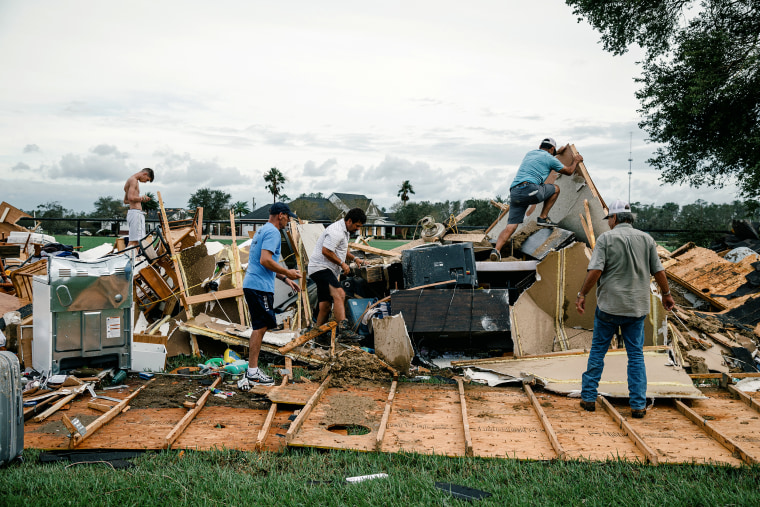A new report by a federal agency that regulates the nation's commodities markets warns that climate change "poses a major risk to the stability of the U.S. financial system" and is already affecting, or is projected to affect, nearly every part of the American economy.
Coming at the midpoint of what has already been an intense hurricane season and as extreme wildfires rage across a huge part of the West Coast, the report offers one of the most strongly worded warnings about the financial risks of climate change yet seen from a federal financial regulator.
It also follows a growing trend of banks and regulators — in the U.S. and around the world — waking up to the need to protect against the financial fallout of global warming.
The new report, titled "Managing Climate Risk in the Financial System," was put together by the Commodity Futures Trading Commission and released online Wednesday.
The commission is responsible for regulating the U.S. derivatives market, which includes the agricultural economy. Market activity in this sector can have important implications for how much people in the country pay for food and other agricultural products that are vulnerable to extreme weather and other consequences of climate change.
The report said U.S. financial regulators "must recognize that climate change poses emerging risks to the U.S. financial system," and it called on them to "move urgently and decisively to measure, understand, and address these risks."
The authors said that fighting climate change will require moving to a net-zero-emissions economy and that markets need to adapt in tandem.
The report also recommended establishing a price on carbon emissions, adding that such a policy "must be fair, economy-wide, and effective in reducing emissions consistent with the Paris Agreement." Carbon pricing, which could take the form of a cap-and-trade program or a carbon tax, would ultimately require legislation passed by Congress.
The authors stressed that climate change could also have unanticipated effects brought on by worsening unrelated vulnerabilities or by spilling over into other parts of the financial system. That is particularly concerning, they said, given the devastating financial burdens created by the coronavirus pandemic, which is "likely to leave behind stressed balance sheets, strained government budgets, and depleted household wealth."
Download the NBC News app for breaking news and alerts
The report urged financial regulators to act swiftly, saying the risks of climate change are too great to ignore.
"Over time, if significant action is not taken to check rising global average temperatures," the authors concluded, "climate change impacts could impair the productive capacity of the economy and undermine its ability to generate employment, income, and opportunity."

